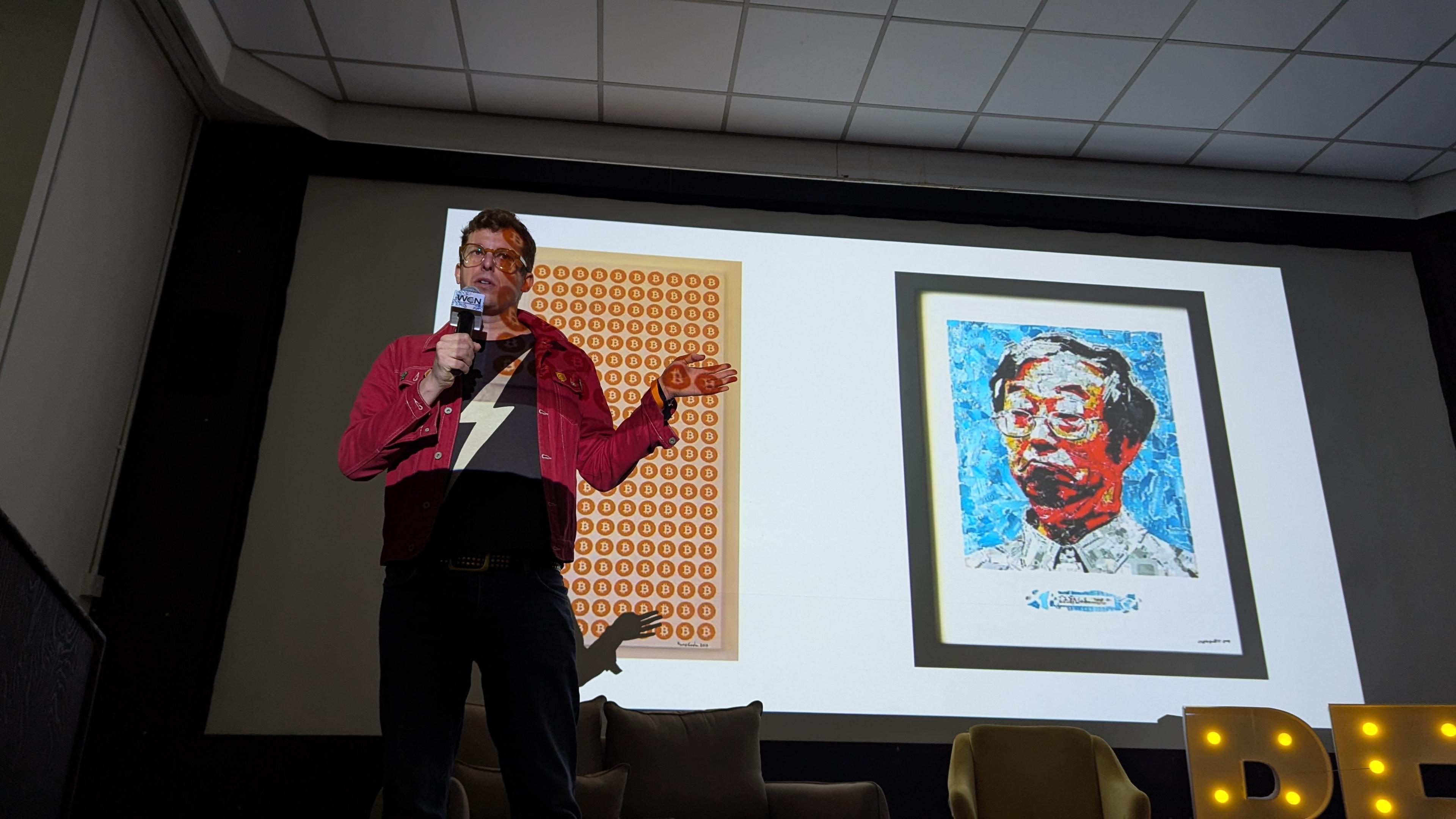2025-10-21 19:21:11
President Trump is demanding that the Justice Department pay him about $230 million in compensation for the federal investigations into him, according to people familiar with the matter,
who added that any settlement might ultimately be approved by senior department officials who defended him or those in his orbit.
The situation has no parallel in American history, as Trump, a presidential candidate, was pursued by federal law enforcement and eventually won the election,
ta…
2025-12-14 06:55:41
"Christmas cookies for historians" https://wronghands1.com/2025/12/09/christmas-cookies-for-historians/
2025-11-03 13:51:29
En noticias futbolísticas, Coquimbo Unido se tituló campeón del torneo de primera división en Chile. Es su primer título nacional.
Me gusta que ocurran este tipo de cosas que rompen la hegemonía de los clubes grandes en el fútbol.
https://www.
2025-12-12 13:52:55
2025-09-30 22:27:24
Day 7: Brenda Romero
I hinted yesterday I'd be moving beyond a narrow definition of "author," so of course that means I'm going to include game designers. I'll definitely get back to some more traditional authors before I hit 20, but I wanted to mix things up early.
Brenda Romero is something of a celebrity in the niche culture that is the Game Developers Coherence, I like to imagine. Of course the misogyny there likely means many just pay attention to who her husband is, but she's a terrific designer in her own right, if not prolific.
Content warning: the Holocaust
To me her most outstanding game has always been "Train," which is an exhibition tabletop game in which players collaborate to load and unload cargo and move train cars around a board, with the stated objective of efficiently delivering cargo to meet certain collective goals. However, through both physical cues and in-game reveals, it becomes clear to players that the game they are playing stimulates the Holocaust, and the cargo they're moving is people being brought to extermination camps. The actual goal of the game is for the players to stop playing and walk away, or perhaps to play against the stated objective and gridlock the trains. Romero supervised play at the expos where it was presented, and intervened to stop the game if the players continued too far (in some cases not picking up on the hints offered because they had very little knowledge of the Holocaust as a historical event). I've never played the game myself; just heard Romero give a report about it, but the sheer genius of designing a game meant not to be played to help educate about a system within which defying the rules was the only ethical action earned her instant respect from me. Romero has a whole series of games in this vein about didn't historical events (not necessarily all designed to not be played), although last I checked in most are just at prototyping stages.
I've got other non-man game designers that will appear on this list, but Romero stood out to go first because she's a good example that you don't need to be someone prolific or widely-known to do great work; I'd bet most people have an author or two they respect who is not widely known (and I'll include at least one more from that category on this list).
#20AuthorsNoMen
2025-09-30 12:27:20
Raiders Pull Off Historically Rare Feat in Loss to Bears https://www.si.com/nfl/raiders/las-vega-chicago-bears-pete-carroll-tom-brady-john-spytek
2025-11-23 10:37:50
Day two introduced again by Mad bitcoins .
Then the history of art on bitcoin includes satoshi and his original logo, ASCII art in the Blockchain, Cassius coins with scratch off keys, these pictured images of fake satoshi and 200 logos.
Exploded from there, trading cards, the rare Pepe's.
What makes it bitcoin art?
Symbology. The logo. Religious symbology. Is it a cult?
Memes. Memes catch and go in a fashion which is unpredictable and fits the whole history to a timeline.
Art builds culture and heros proliferate bitcoin culture for all.
Art traditionally goes up in value but none of it seems to outpace bitcoin itself.
Some is for sale in the gallery but it'll unlikely be a better but then 30 percent discount bitcoin today 😆
#bitfest #art #bitcoin
2025-10-09 09:36:31
Probing evolution of Long GRB properties through their cosmic formation history aided by Machine Learning predicted redshifts
Dhruv S. Bal, Aditya Narendra, Maria Giovanna Dainotti, Nikita S. Khatiya, Aleksander L. Lenart, Dieter H. Hartmann
https://arxiv.org/abs/2510.07306
2025-10-09 08:52:41
When Machines Meet Each Other: Network Effects and the Strategic Role of History in Multi-Agent AI
Yu Liu, Wenwen Li, Yifan Dou, Guangnan Ye
https://arxiv.org/abs/2510.06903 htt…
2025-09-25 13:46:43
Cal Raleigh hits 59th, 60th as Mariners secure AL West; Aaron Judge makes MLB history; NFL QB Power Rankings
https://www.cbssports.com/nfl/news/cal-ral



